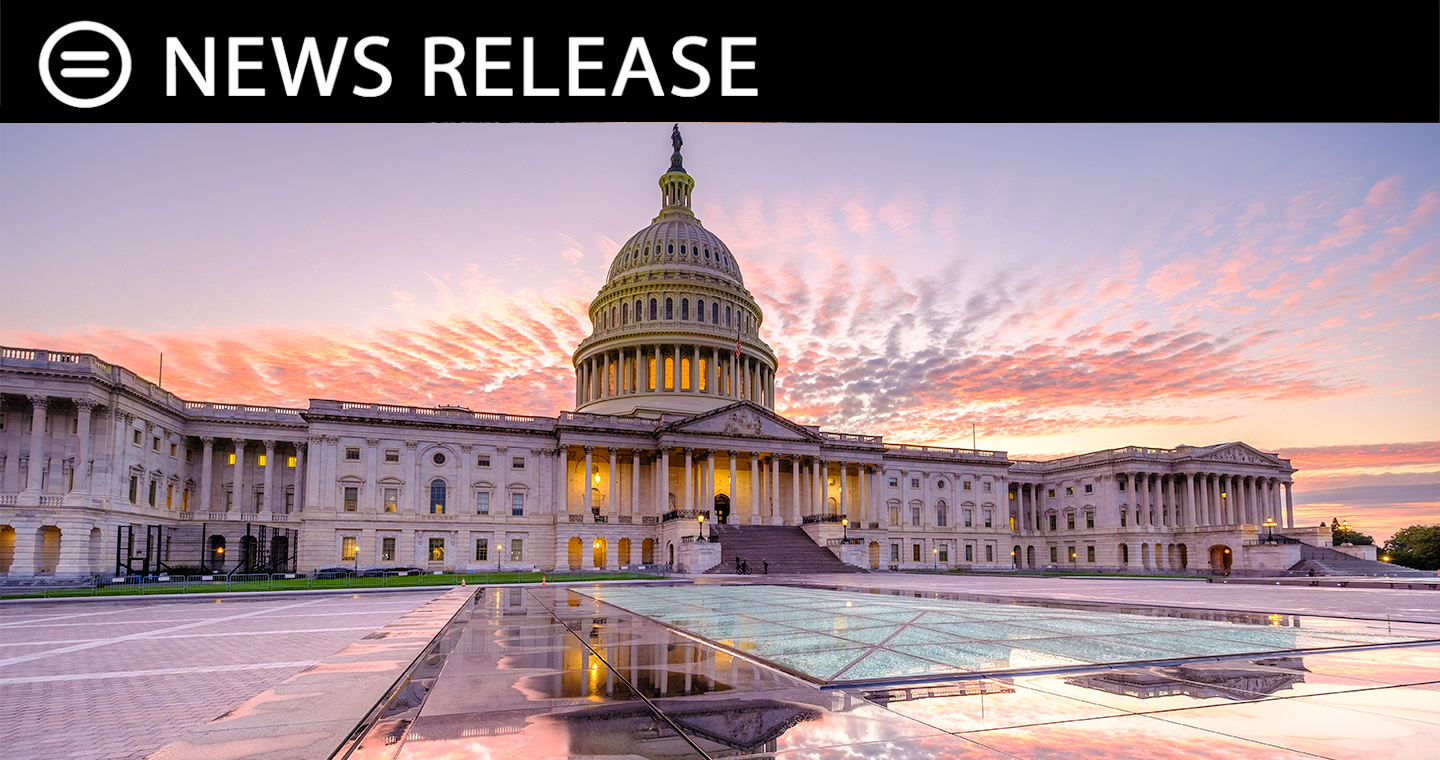National Urban League Applauds Passage of Fiscal Year 2022 Omnibus Package

WASHINGTON, D.C. (March 14, 2022) – Today, National Urban League President and CEO Marc H. Morial issued the following statement after Congressional passage of the Omnibus Spending package late Thursday evening:
“We are pleased to see Congress pass the FY 2022 Omnibus Spending package to provide critical funding for federal government operations and community projects, including many of the National Urban League’s top priorities. We are grateful to our New York leaders, Majority Leader Charles Schumer and Senator Kirsten Gillibrand, for supporting the Urban League Empowerment Center (ULEC). We also thank our other allies in Congress for their advocacy and support of our Urban League movement and the programs we bring to communities across the country.
“The funding in this year’s Omnibus package will help the nation continue to recover from the dual pandemics of COVID-19 and the Trump Era and provide the Urban League Movement with critical resources needed to enhance underserved communities across the country,” said Marc H. Morial, President and CEO of the National Urban League. “We thank our Congressional leaders for their commitment to making such bold investments in the areas that have gone underfunded for too long.
"For too long America’s structural, economic inequalities in health care and housing, the economy and education have been ignored,” said Majority Leader Chuck Schumer. “This Democratic led Congress is taking action to invest in lasting, meaningful solutions that tear down economic and social barriers, and reinvest in historically underserved communities. Together with partners like the National Urban League, America is making a significant down payment to support our communities all across the country."
“From investing in health care, education and housing to devoting significant resources to improving maternal health, this year’s funding package delivers billions for historically underserved communities,” said Senator Gillibrand. “I am grateful to the support of the National Urban League, whose help is critical to laying the foundation for a brighter future for every community in New York and across the country.”
“The National Urban League’s latest project – The Urban League Empowerment Center (ULEC) – also received funding from this year’s Omnibus package. The project will include the Institute for Race, Equity and Justice, conference space that can be used by the public and a civil rights museum. Additionally, both the museum and the Institute will provide programming and outreach to the surrounding low- and moderate-income community.
“Fourteen Urban League affiliates also secured funding for sixteen projects in their communities in the Omnibus Spending bill. The projects covered entrepreneurial development, workforce training and education, and housing counseling.”
In addition to community projects, following federal programs funded in the Omnibus package are top priorities of the National Urban League:
Department of Commerce:
- $12 million for advanced communications research at the National Telecommunications and Information Administration, which would support the development and deployment of broadband and 5G technologies by identifying innovative approaches to spectrum sharing.
- $373.5 million – Economic Development Administration
- $55 million – Minority Business Development Administration
Department of Justice:
- $ 102.5 million – Youth Mentoring in Juvenile Justice Programs
- $14.5 million in support of the Emmett Till Unsolved Civil Rights Crimes Reauthorization Act, to investigate and prosecute unresolved civil rights era “cold case” murders.
Small Business Administration:
- $290 million for Entrepreneurial Development Programs, including: $138 million for Small Business Development Centers, $37 million for Microloan Technical Assistance, and $24.4 million for Women’s Business Centers.
Treasury:
- $295 million for Community Development Financial Institutions.
Department of Labor:
- $10.5 billion for Employment and Training Administration
-
- $102.1 million for reentry of Ex-offenders
- $870.6 million for Adult Employment and Training
- $1.1 billion for Youth Employment and Training
- $99 million YouthBuild
- $235 million for Registered Apprenticeship programs
Education
- $6,895 for the maximum Pell Grant
- $885 million to assist primarily Minority Serving Institutions (MSIs) in the Aid for Institutional Development account, including:
-
- $363 million for Historically Black Colleges and Universities
- $183 million for Hispanic Serving Institutions
- $44 million for Tribally Controlled Colleges and Universities
Department of Health and Human Services
- $65.95 million for the only Federal program addressing the nation’s racial and ethnic health disparities, Racial and Ethnic Approach to Community Health (REACH)
- $83 million for safe motherhood
Department of Housing and Urban Development:
- $3.3 billion for Community Development Block Grants
- $1.5 billion for the HOME Investment Partnerships Program which has helped preserve approximately 1.33 million affordable homes
- $57.5 million for Housing Counseling assistance for renters, homeowners, and those considering homeownership and $145.4 million for Policy Development and Research, including $20 million to continue legal aid assistance for eviction prevention
- $85 million for Fair Housing and Equal Opportunity to help increase enforcement in fair housing
- $415 million for the Office of Lead Hazard Control and Healthy Homes

